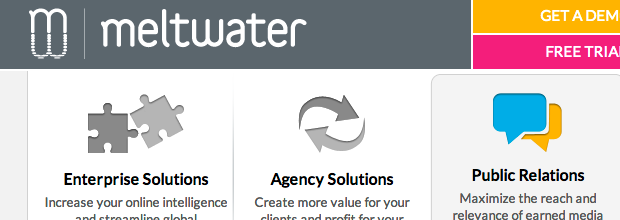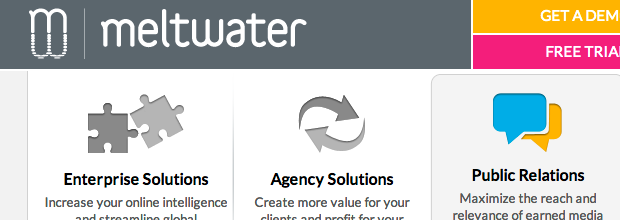 Last month, a federal district judge in New York City handed down a controversial ruling in the case of Associated Press (AP) v. Meltwater.
Last month, a federal district judge in New York City handed down a controversial ruling in the case of Associated Press (AP) v. Meltwater.
The mammoth 91-page decision, a summary judgment in favor of the AP, was a crushing defeat for the news aggregation service Meltwater, which is left considering “options” after the decision was handed down.
But ever since the ruling was handed down there have been questions raised about what the broader implications of this ruling could be. After all, it’s not every day we get a fair use ruling on the issue of online news and aggregation, the impact, theoretically at least, could reach not only other aggregation services, but news search engines and even bloggers that write about news stories first reported by others.
So, what are the potential impacts for bloggers? To find out we first have to take a look at the background of the case, what the judge ruled and why.
On that note, let’s delve into the case itself and find out the issues that’s at the core of the dispute.
Associated Press v. Meltwater Background
The Associated Press is a wire news service that produces and sends out news stories for inclusion in publications all over the world. Meltwater, on the other hand, is a Norwegian news aggregation service that is paid by companies to monitor mentions of their name or relevant news in the field and provide digital “clippings” of them.
The AP is extremely well known for being aggressive and protective of its copyright, having previously successfully received favorable settlements from artist Shepard Fairey over the iconic Obama “Hope” poster and All Headline News, for allegedly creating a competing service by rewriting AP content.
In February of last year, the Associated Press filed suit against Meltwater claiming that Meltwater, similar to All Headline News, was creating a competitor to the AP’s services using AP content. Meltwater defended itself, saying that all it does is produce a headline and a snippet of the article, which it believed was protected under fair use, and Meltwater routinely likened itself to a news search engine, such as Google.
The case quickly created sharp divides with publishers, including The New York Times and others, filing briefs in support of the AP but tech organizations, including both the Electronic Frontier Foundation and Public Knowledge, filing briefs in support of Meltwater.
However, when the judge handed down his ruling late last month, it was not pretty for Meltwater. The judge granted summary judgment in favor of the Associated Press on all issues save one, namely a request for an injunction requiring Meltwater to delete all AP content in its database.
Still, the judge ruled that Meltwater’s use of the content is infringing and set up likely damages against Meltwater. For understandable reasons, this case has been celebrated by the publishing industry and decried by the tech industry.
But why did the judge reach the decision he did? The information is in the decision itself.
The Reasons Behind the Decision
The ruling, according to the judge, hinges primarily on the idea of transformative use.
Fair use, which is what Meltwater was attempting to claim, is a limited set of exceptions to copyright law that allows others to copy content without permission. However, the test as to whether or not a use is a fair one or not is a complex argument that involves weighing four factors of varying importance.
In performing that analysis, the judge came down heavily on Meltwater because, according to him, the use was not transformative enough and, in fact, Meltwater’s service competed directly with the Associated Press.
The judge pointed to several variables in Meltwater to make his case, including that Meltwater is a private service, that it includes the lede of the story with its snippets (the lede being considered the “heart” of the story) and that Meltwater did not change the work in any way (for example, to add commentary, criticism or opinion).
Though Meltwater attempted to position itself like other search engines, the judge went out of his his way to differentiate Meltwater from a “legitimate” search engine, noting that Meltwater did little to drive traffic to the AP (Meltwater’s click-through rate was much lower than Google’s) and that Meltwater is a paid, private service. The judge also chided Meltwater for using more content than he felt was necessary to provide the function of the service.
So what does this mean for bloggers? The answer is probably not much right now, but it is definitely a case worth following closely.
What Meltwater Might Mean for Bloggers
There are two critical factors to consider before weighing what impact that this case might have on bloggers.
First, the case is just a district court ruling. As we discussed in the Supreme Court discussion two weeks ago, this is the very bottom of the legal pyramid in the U.S. This case almost certainly will be appealed and the Appellate Court could have something very different to say.
Second, like most fair use-oriented case, the decision is very fact-specific, looking exclusively at Meltwater’s actions. It’s possible even a small change in the facts could drastically alter the results.
Still, the case is an interesting one for bloggers, who often comment on and quote news sources.
While it’s tempting to nitpick elements of the case, such as whether the lede deserves such a high level of protection, the truth is most of the case seems to have hinged on whether Meltwater was competing directly with the AP without adding anything new to the conversation.
This goes back to the idea of symbiosis. The case closely analyzes the relationship between Meltwater and the AP and found it to be purely one-directional. Meltwater used AP content, charged for its service, provided little in the way of traffic and, according to the judge, competed directly with the AP. This seemingly one-sided relationship appears to be critical in the judge’s decision.
What this means for bloggers is that it’s important to focus not just on regurgitating news, but in adding your own commentary, background and opinion. It also means to focus on ethical linking practices that encourage people to visit the original stories and using as little of the original content as necessary.
All in all, this is fairly standard advice when it comes to fair use and the Meltwater ruling really doesn’t change that. What did change was that an activity that many considered to be universally a fair use, namely the use of headlines and snippets of articles, was found not to be by one judge in this particular case.
It doesn’t really change what is good fair use advice and what bloggers should be doing when incorporating the works of others into their posts.
Bottom Line
In the end, it’s understandable why the tech community is so upset and worried about this ruling. It adds a great deal of uncertainty to an area of copyright law that many felt was more or less settled.
The truth is that fair use is always very fact-specific and even if a series of rulings come down that seem to indicate something is universally true, it may not be, as the Meltwater ruling shows.
The best thing anyone can do is never assume that fair use is a “settled” issue and, instead, focus on following the best practices they can. It won’t guarantee that a use will be fair, but nothing else will either.
If you want legal certainty, fair use is probably not the place to seek it out.

